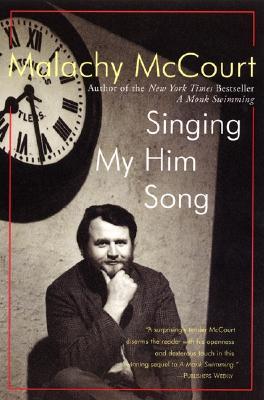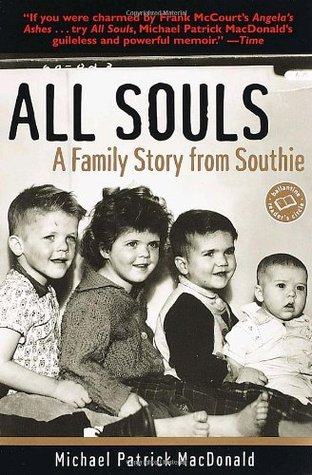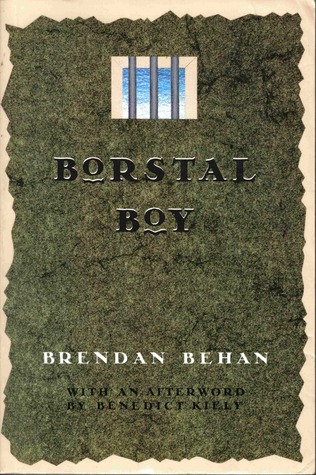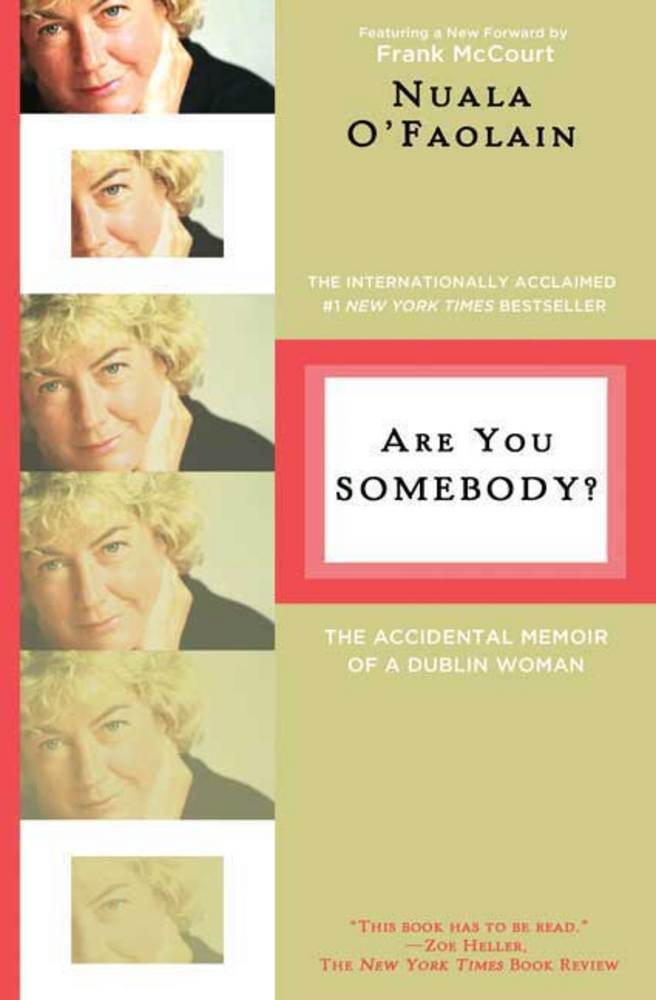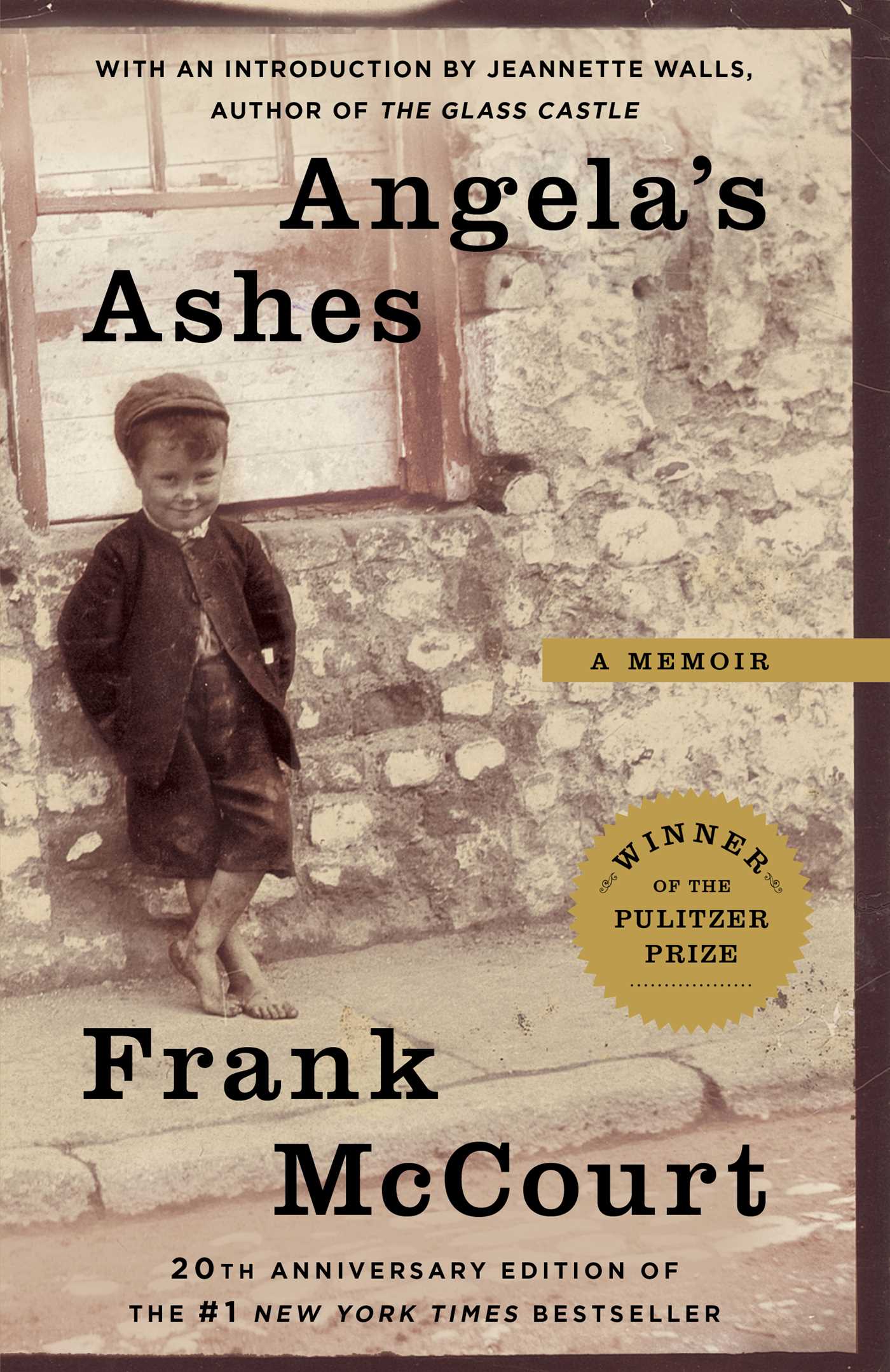St. Patrick’s Day may be over but it’s still Irish-American Heritage Month—so toss out that solo cup of green beer and pick up one of these (ultimately uplifting!) memoirs about harrowing, poverty-stricken Irish childhoods. From Frank McCourt to Muala O’Faolain, from Limerick to Northern Dublin, Ireland has produced some of the most beloved contemporary writers. Here are their extraordinary stories.
Dad’s Down at the Pub: 5 Irish Memoir Must-Reads
Malachy McCourt, bestselling author of A Monk Swimming, shares the extraordinary story of how he went from living the headlong and heedless life of a world-class drunk to becoming a sober, loving father and grandfather, still happily married after thirty-five years. Bawdy and funny, naked and moving, told in the same inimitable voice that left readers all over the world wondering what happened next in A Monk Swimming, Singing My Him Song is "told with the frankness and honesty for which McCourt has become renowned" (New York Daily News).
Malachy McCourt, bestselling author of A Monk Swimming, shares the extraordinary story of how he went from living the headlong and heedless life of a world-class drunk to becoming a sober, loving father and grandfather, still happily married after thirty-five years. Bawdy and funny, naked and moving, told in the same inimitable voice that left readers all over the world wondering what happened next in A Monk Swimming, Singing My Him Song is "told with the frankness and honesty for which McCourt has become renowned" (New York Daily News).
MENTIONED IN:
A breakaway bestseller since its first printing, All Souls takes us deep into Michael Patrick MacDonald's Southie, the proudly insular neighborhood with the highest concentration of white poverty in America. Rocked by Whitey Bulger's crime schemes and busing riots, MacDonald's Southie is populated by sharply hewn characters like his Ma, a miniskirted, accordion-playing single mother who endures the deaths of four of her eleven children. Nearly suffocated by his grief and his community's code of silence, MacDonald tells his family story here with gritty but moving honesty.
A breakaway bestseller since its first printing, All Souls takes us deep into Michael Patrick MacDonald's Southie, the proudly insular neighborhood with the highest concentration of white poverty in America. Rocked by Whitey Bulger's crime schemes and busing riots, MacDonald's Southie is populated by sharply hewn characters like his Ma, a miniskirted, accordion-playing single mother who endures the deaths of four of her eleven children. Nearly suffocated by his grief and his community's code of silence, MacDonald tells his family story here with gritty but moving honesty.
MENTIONED IN:
This miracle of autobiography and prison literature begins: "Friday, in the evening, the landlady shouted up the stairs: 'Oh God, oh Jesus, oh Sacred Heart, Boy, there's two gentlemen here to see you.' I knew by the screeches of her that the gentlemen were not calling to inquire after my health . . . I grabbed my suitcase, containing Pot. Chlor., Sulph Ac, gelignite, detonators, electrical and ignition, and the rest of my Sinn Fein conjurer's outfit, and carried it to the window..." The men were, of course, the police, who knew seventeen-year-old Behan for the anti-imperialist terrorist he was and arrested him. He spent three years as a prisoner in England, primarily in Borstal (reform school), and was then expelled to his homeland, a changed but hardly defeated rebel. Once banned in the Irish Republic, Borstal Boy is both a riveting self-portrait and a clear look into the problems, passions, and heartbreak of Ireland.
This miracle of autobiography and prison literature begins: "Friday, in the evening, the landlady shouted up the stairs: 'Oh God, oh Jesus, oh Sacred Heart, Boy, there's two gentlemen here to see you.' I knew by the screeches of her that the gentlemen were not calling to inquire after my health . . . I grabbed my suitcase, containing Pot. Chlor., Sulph Ac, gelignite, detonators, electrical and ignition, and the rest of my Sinn Fein conjurer's outfit, and carried it to the window..." The men were, of course, the police, who knew seventeen-year-old Behan for the anti-imperialist terrorist he was and arrested him. He spent three years as a prisoner in England, primarily in Borstal (reform school), and was then expelled to his homeland, a changed but hardly defeated rebel. Once banned in the Irish Republic, Borstal Boy is both a riveting self-portrait and a clear look into the problems, passions, and heartbreak of Ireland.
MENTIONED IN:
Are You Somebody is a moving and fascinating portrait of both Ireland and one of its most popular and respected commentators. This gem of honesty and insight had its first life as the introduction to a collection of Nuala O'Faolain's Irish Times columns that became a number-one bestseller in Ireland. It now stands alone. Ireland has fallen in love with this memoir of an Irish woman of letters, and now this country will too.
Are You Somebody is a moving and fascinating portrait of both Ireland and one of its most popular and respected commentators. This gem of honesty and insight had its first life as the introduction to a collection of Nuala O'Faolain's Irish Times columns that became a number-one bestseller in Ireland. It now stands alone. Ireland has fallen in love with this memoir of an Irish woman of letters, and now this country will too.
"When I look back on my childhood I wonder how I managed to survive at all. It was, of course, a miserable childhood: the happy childhood is hardly worth your while. Worse than the ordinary miserable childhood is the miserable Irish childhood, and worse yet is the miserable Irish Catholic childhood." So begins the luminous memoir of Frank McCourt, born in Depression-era Brooklyn to recent Irish immigrants and raised in the slums of Limerick, Ireland. Frank's mother, Angela, has no money to feed the children since Frank's father, Malachy, rarely works, and when he does he drinks his wages. Yet Malachy -- exasperating, irresponsible and beguiling-- does nurture in Frank an appetite for the one thing he can provide: a story. Frank lives for his father's tales of Cuchulain, who saved Ireland, and of the Angel on the Seventh Step, who brings his mother babies. Perhaps it is story that accounts for Frank's survival. Wearing rags for diapers, begging a pig's head for Christmas dinner and gathering coal from the roadside to light a fire, Frank endures poverty, near-starvation and the casual cruelty of relatives and neighbors--yet lives to tell his tale with eloquence, exuberance and remarkable forgiveness. Angela's Ashes, imbued on every page with Frank McCourt's astounding humor and compassion, is a glorious book that bears all the marks of a classic.
"When I look back on my childhood I wonder how I managed to survive at all. It was, of course, a miserable childhood: the happy childhood is hardly worth your while. Worse than the ordinary miserable childhood is the miserable Irish childhood, and worse yet is the miserable Irish Catholic childhood." So begins the luminous memoir of Frank McCourt, born in Depression-era Brooklyn to recent Irish immigrants and raised in the slums of Limerick, Ireland. Frank's mother, Angela, has no money to feed the children since Frank's father, Malachy, rarely works, and when he does he drinks his wages. Yet Malachy -- exasperating, irresponsible and beguiling-- does nurture in Frank an appetite for the one thing he can provide: a story. Frank lives for his father's tales of Cuchulain, who saved Ireland, and of the Angel on the Seventh Step, who brings his mother babies. Perhaps it is story that accounts for Frank's survival. Wearing rags for diapers, begging a pig's head for Christmas dinner and gathering coal from the roadside to light a fire, Frank endures poverty, near-starvation and the casual cruelty of relatives and neighbors--yet lives to tell his tale with eloquence, exuberance and remarkable forgiveness. Angela's Ashes, imbued on every page with Frank McCourt's astounding humor and compassion, is a glorious book that bears all the marks of a classic.
MENTIONED IN:

